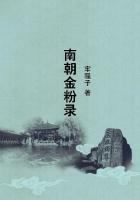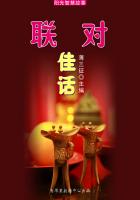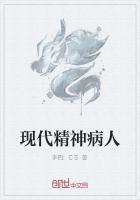Here again the orthodox economists find reason for congratulation, because big factories and workshops are the cheapest and most productive form of manufacturing industry; and again, the observant traveller cannot shut his eyes to ugly facts which force themselves on his attention. He notices that this cheapest and most productive form of manufacturing industry does not seem to advance the material and moral welfare of the population. Nowhere is there more disease, drunkenness, demoralisation and misery than in the manufacturing districts.
The reader must not imagine that in making these statements I wish to calumniate the spirit of modern enterprise, or to advocate a return to primitive barbarism. All great changes produce a mixture of good and evil, and at first the evil is pretty sure to come prominently forward. Russia is at this moment in a state of transition, and the new condition of things is not yet properly organised. With improved organisation many of the existing evils will disappear. Already in recent years I have noticed sporadic signs of improvement. When factories were first established no proper arrangements were made for housing and feeding the workmen, and the consequent hardships were specially felt when the factories were founded, as is often the case, in rural districts. Now, the richer and more enterprising manufacturers build large barracks for the workmen and their families, and provide them with common kitchens, wash-houses, steam-baths, schools, and similar requisites of civilised life. At the same time the Government appoints inspectors to superintend the sanitary arrangements and see that the health and comfort of the workers are properly attended to.
On the whole we must assume that the activity of these inspectors tends to improve the condition of the working-classes. Certainly in some instances it has that effect. I remember, for example, some thirty years ago, visiting a lucifer-match factory in which the hands employed worked habitually in an atmosphere impregnated with the fumes of phosphorus, which produce insidious and very painful diseases. Such a thing is hardly possible nowadays. On the other hand, official inspection, like Factory Acts, everywhere gives rise to a good deal of dissatisfaction and does not always improve the relations between employers and employed. Some of the Russian inspectors, if I may credit the testimony of employers, are young gentlemen imbued with socialist notions, who intentionally stir up discontent or who make mischief from inexperience. An amusing illustration of the current complaints came under my notice when, in 1903, I was visiting a landed proprietor of the southern provinces, who has a large sugar factory on his estate. The inspector objected to the traditional custom of the men sleeping in large dormitories and insisted on sleeping-cots being constructed for them individually. As soon as the change was made the workmen came to the proprietor to complain, and put their grievance in an interrogative form: "Are we cattle that we should be thus couped up in stalls?"
To return to the northern agricultural region, the rural population have a peculiar type, which is to be accounted for by the fact that they never experienced to its full extent the demoralising influence of serfage. A large proportion of them were settled on State domains and were governed by a special branch of the Imperial administration, whilst others lived on the estates of rich absentee landlords, who were in the habit of leaving the management of their properties to a steward acting under a code of instructions. In either case, though serfs in the eye of the law, they enjoyed practically a very large amount of liberty. By paying a small sum for a passport they could leave their villages for an indefinite period, and as long as they sent home regularly the money required for taxes and dues, they were in little danger of being molested.
Many of them, though officially inscribed as domiciled in their native communes, lived permanently in the towns, and not a few succeeded in amassing large fortunes. The effect of this comparative freedom is apparent even at the present day. These peasants of the north are more energetic, more intelligent, more independent, and consequently less docile and pliable than those of the fertile central provinces. They have, too, more education. A
large proportion of them can read and write, and occasionally one meets among them men who have a keen desire for knowledge. Several times I encountered peasants in this region who had a small collection of books, and twice I found in such collections, much to my astonishment, a Russian translation of Buckle's "History of Civilisation."
How, it may be asked, did a work of this sort find its way to such a place? If the reader will pardon a short digression, I shall explain the fact.
Immediately after the Crimean War there was a curious intellectual movement--of which I shall have more to say hereafter--among the Russian educated classes. The movement assumed various forms, of which two of the most prominent were a desire for encyclopaedic knowledge, and an attempt to reduce all knowledge to a scientific form. For men in this state of mind Buckle's great work had naturally a powerful fascination. It seemed at first sight to reduce the multifarious conflicting facts of human history to a few simple principles, and to evolve order out of chaos. Its success, therefore, was great. In the course of a few years no less than four independent translations were published and sold. Every one read, or at least professed to have read, the wonderful book, and many believed that its author was the greatest genius of his time.
During the first year of my residence in Russia (1870), I rarely had a serious conversation without hearing Buckle's name mentioned;















